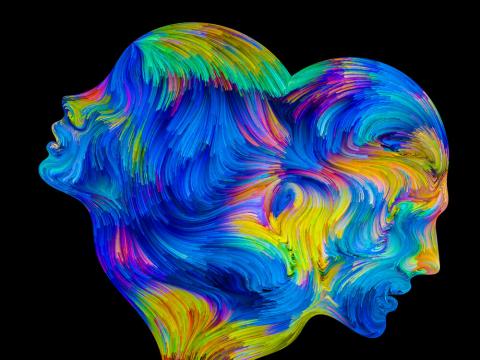
According to the National Alliance on Mental Illness, roughly 1-in-5 adults in the U.S. experiences mental illness in a given year. That’s 43.8 million people — and many of those millions are Christians. And yet a stigma and silence around mental health persist, in our churches and our communities.
As Robyn Henderson-Espinoza writes, theologies that emphasize mental illness as a “test of faith” or evidence of sin leave little room for people to find comfort, solidarity, or healing in their communities of faith. Instead, many suffer in isolation, their struggles ignored or even amplified by those places where they seek spiritual sustenance.
Mental health and its treatment intersect with a number of other crucial justice issues, including racism, sexism, and LGBTQ justice. If our faith compels us to care for and be in solidarity with others and especially with those who are particularly vulnerable, we must be willing to talk about mental health.
(Don’t miss our reported story on how churches do, and don’t, act as spaces of healing; and one pastor’s story on his struggle with mental illness.)
May is Mental Health Awareness Month, and we want to hear from you — how has mental illness affected you or your relationships? How has it been discussed in your church? Where do you find the support you need? Tell us your story, and we may feature it on our site.
If in immediate crises, please seek help. You can find contact info to talk to someone via phone or text here.
Your Stories
I was always prone to worry, but was usually able to let it go through prayer. Then, in the final year of my postgraduate study, I descended into the abyss of severe anxiety.
I now see that a culmination of factors led me to that point: combining intensive study with work, living out of home for the first time, working through a broken engagement, discipling a new Christian with a multitude of doubts, and bearing a heavy load of responsibility in a Christian ministry.
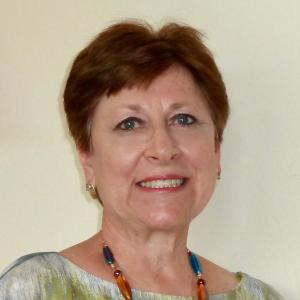
When my chest becomes heavy, my heart races and my body shakes uncontrollably; I know I am descending into my silent hell. Post Traumatic Stress Disorder (PTSD) is normally associated with our returning veterans of war. However, PTSD may affect sexual assault survivors or others who have had a severe trauma experience. PTSD is debilitating and can happen without warning. It may happen soon after trauma or years later.
My descent to a silent hell began in 2014 as I served in mission in the country of Peru. I taught ESL at a school founded by an American missionary in 1892. I had less than 36 hours left in service. I had spent that fatal day sorting and packing 18 months of travel and service into two suitcases preparing for my departure. The headmaster came to my apartment to offer food and time to complete my final paper work for Global Mission. I welcomed the offer. That night as he grabbed me “no” was not no, “stop” was not stop, and “don’t” was not don’t. My attacker was responsible for my safety. He held power within the Peru church. That night he stole my joy, my ability to trust, and the ability to speak out.
I traveled to Ecuador for a week of rest. I walked the streets entering the first church I saw. I sat in front of a life-size crucifix and could not hold back the tears. It was there I shouted to my God in prayer all the anger I felt. God where were you that night? Why God, why? I was on mission! I cannot say how long I sat there. I stood up feeling peace and a call to go back to Peru. My response to God was “no way in hell!”
Home from mission I shared the joy of service with a smile on my face. I kept the assault a secret till I could no longer control my anger; my nightmares; my depression. I called a pastor in panic who had supported me while on mission. His response “I can’t help you, it’s beyond my expertise.” It was up to me to find help and and maintain my faith.
In December 2014, I learned a young woman was to serve at the school in 2015. She said I had inspired her to leave her country and teach in Peru. I knew we would be security for each other. Working with a counselor I told a Volunteer In Mission, serving in Peru, about the assault. She immediately told me she would be at the school when I returned. I then had a donation given to me. The giver told me “your face lights up when you talk of the students and your work there.” I had not asked for any of these things. I felt God had nudged each of these individuals to help me return. I returned to Peru with faith, fear, and a contingency plan.
When I returned home in 2015 I felt I had done all God had called me to do. I moved forward with my life and found joy in serving in the church and finding new interests. Life was good. I put the assault behind me.
Then came the presidential election and I found myself slipping backwards, free falling at a very fast pace. I did not understand what was happening to me. I attend an evangelical church and could not understand how the white male evangelical Christian could vote for our now president. I could not understand how a Christian voted for a man who spoke so openly of sexual assaulting women and much more.
I began to isolate myself. My nightmares and anger returned. I no longer attended church. Sitting next to someone or have them touch me was too much for me to bear. I no longer enjoyed church or other activities. I no longer could concentrate or manage basic chores. I suffered in silence. PTSD had taken hold.
I finally found the courage to share with a church friend. She encouraged me to seek further help. The Crisis Center in my area provided full services for assault survivors including treatment for PTSD. I joined a support group and sought medications. I found the courage to share my assault and illness with my woman’s group at church. I began to tell my story for the Crisis Center tours. The Center informed me they were having difficulty bringing information to the churches on the services they provide. I have learned in the faith based community many will work to end human trafficking, but will stay silent on sexual assault. I agreed to reach out to my denomination. I approached the leaders who oversee our conference churches to inform them of the assault and ask for a program to educate pastors on the resources available. I found them more concerned for the church and a possible lawsuit, then for my well being. Their response accentuated my PTSD.
Mental illness is rarely understood by those that have not experienced severe depression. My faith tells me it is not God’s will; it is not to make me stronger; it is not something that can be put aside. I have heard each of these reasons from people of faith. My faith tells me that man has free will to choose good or evil action. My faith tells me God shows a way forward. I ask for God’s help in educating others on an appropriate response within the church. Pastors need an understanding of resources and how to speak with a survivor before a survivor walks into their office. They should have knowledge of counselors specializing in assault or PTSD treatment. A pastor should have resources to help a survivor continue in the faith community. I fight PTSD each day. I struggle to remember the joy of mission. Angels within my church sit with me as I attend service and work toward healing.
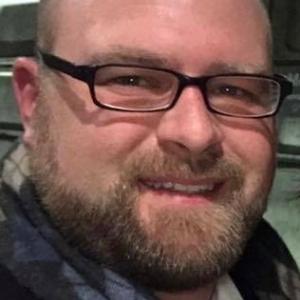
As people called by one who implored us to heal the sick, why we treat mental illness differently than physical illness is something we must confront.

Our cross is a global church ill-equipped to deal with mental illness and deeply rooted in ableism.
It doesn’t appear among those who suffer from cancer, pneumonia or broken limbs. For I suffer from a broken spirit; mine is the dark, heavy disease of depression.
I felt ashamed to even admit that I was suffering from this disease.

Jesus sought out the ones like me — the ones who had nothing to offer him, the ones who were overcome with disease, the ones who felt neglected and forgotten. Yet, Jesus saw me.
When I was 23 I came down with a severe case of sinusitis that lasted for several weeks. I was constantly drowsy, dizzy, and suffered from tunnel vision. Just when I began to recover I suddenly lost my job. The combined effects of my illness and unemployment sent me into a deep mental fog and physical numbness, a separateness from life. I was sick, living alone, and didn’t know why I felt so awful. Although I didn’t realize it at the time, I was in a serious depression. I lost interest in the things I loved and wondered if I’d ever be me again. At my lowest ebb I feared that even death could not alleviate my misery.
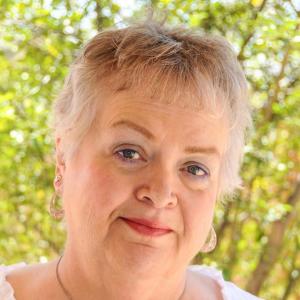
Those of us who have a mental illness face a great deal of stigma. If people find out we have a mental illness, we are often ostracized, isolated, or blamed. Sometimes we are told we lack faith or are demon possessed. I have been fortunate to receive much support from family and friends, but many of the people I worked with have faced much stigma.
Sadly, what most people know about mental illness is what they see in the media, on TV, and in movies. And often we are portrayed as either someone who is to be pitied, laughed at, or afraid of. Usually, we are portrayed as being violent, but, actually, it is more likely that violence will be done to us than it is that we will be violent. Most of us want a quiet, peaceful life.
Because of this stigma, when we are struggling, often we do not let others know about our struggle. We keep quiet. Often people do not know who has a mental illness because we hide it as best we can. I have been surprised at the people at church who have shared with me that, in the past, they were so depressed they considered suicide or a family member has been suicidal. I never would have guessed. Some of these people have kept it a secret for many years and never spoken of it. Most of them have felt alone.
I am very open about having bipolar disorder, but a little while back, I had a brief episode during which time I struggled with depression and thoughts of self-harm. I had let the other elders and the pastor know, but not the congregation. At church on Sunday, people are always invited to make prayer requests, which are then included in a public prayer. People often request prayers for health concerns and other concerns. Recently, when I had two knee replacement surgeries, I requested prayers for healing. The church has been supportive, even affirming, of me but this time, I did not ask for prayers for my depression and anxiety.
I was surprised by this, and realized that, if someone like me who is very open about having a mental illness in an affirming church, finds it too difficult to ask the church for prayers then it is probably impossible for most of us. The next Sunday, I forced myself to make the prayer request, but it was really difficult and felt very awkward. I made the request for two reasons. First, I needed prayers, and, second, people needed to hear someone make such a request.
And what do people do when they find out we have a mental illness? They usually do nothing. After church, on the Sunday I made my prayer request, no one said anything to me about it. I was not surprised even though this is a very caring church. Most people simply do not know what to say so they say nothing. It is not like when you get sick and people tell you that they hope you get well soon.
Mental illnesses are called the casserole-less condition because of what happens when we are struggling. After my knee replacement surgery, I got get-well cards, and, when I came home from the hospital, food was brought to my house. But, when we struggle with a mental illness, people often do nothing even if they are aware of our struggle. They do not bring a casserole or even send a card. They usually don’t even ask how we are. The situation is just ignored because no one knows what to say or do.
I know I am limited in where I can look for work because I have chosen to be open about having a mental illness. Some positions I don’t even try for, but I have decided to be open about having a mental illness for two reasons. First, I know that in order to fight stigma, people need to see the face of someone with a mental illness other than the faces they see in the media. Second, there are many of us who dare not risk being open so those of us who can be open need to be so eventually we can all be open and receive the support we need.
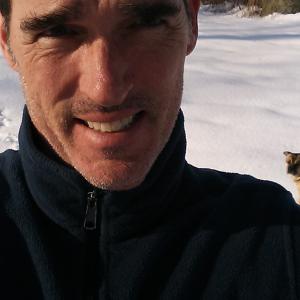
As a child, I thought my name was "Clinical." As an adult, I know my name to be written in the scrolls of life. I am a person who has lived with mental illness for decades: clinical depression and addiction/substance use disorder. I am, more importantly, a person in long-term recovery (clean and sober) but I still live with the echoes of distant depressions, coming awash over me for months at a time.
I'm a 15-year-old Lutheran Christian who's struggled with bipolar disorder (originally diagnosed as extreme depression), anxiety/panic disorder, and possibly schizoaffective disorder. I'm also queer, which has influenced my problems and my recovery. I've honestly heard it all at this point. After being hospitalized a few times, you get used to what other religious people who don't really understand say. "Just pray harder." "Go to church and all your troubles will go away." "It's a sin to kill yourself. You have to repent for attempting suicide." "This is just a test of faith." "It's because you're gay. Just stop promoting sinful acts and God will accept you."
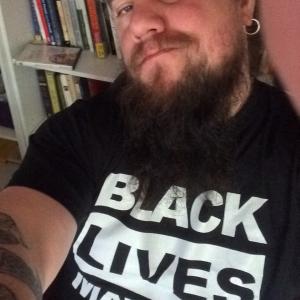
My own diagnoses, especially coming after I'd already been ordained, have presented their challenges. I'm medicated. I'm in deep, serious therapy. I have accountability circles. I write almost obsessively about my life because authenticity is the only true coping mechanism I have; the lies around mental illness kept my uncle wrapped in darkness for nearly two decades. I lay bear myself because otherwise, I cannot approach the altar; I cannot continue to work on this deconstruction of the false self so I can authentically take on the clothing of Christ, not if I'm not honest. Mendacity is the enemy of mental wellness. At least for me.
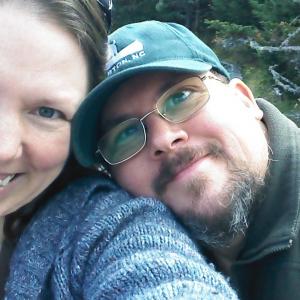
During most of my adult life, I have suffered with depression. At first it came on after my mother was diagnosed with cancer. But, therapy helped with that and she seemed to be getting better with treatment.
Then ... my first marriage failed. Oh, how valuable it was to seek out therapy again, to talk to people who didn't placate me but listened to me and was that shoulder I needed. I slowly got better and was fine for a while, until my mother died, after I suffered a miscarriage a few months that prior and was currently 17 weeks pregnant.